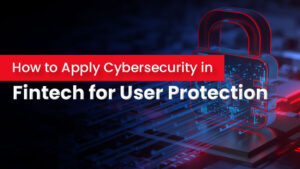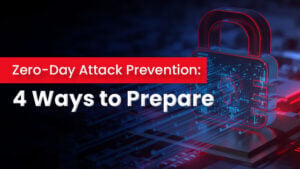
How to Apply Cybersecurity in Fintech for User Protection
Introduction As fintech evolves, it brings innovative financial solutions that enhance user convenience, such as mobile banking, digital lending, and secure payments. However, as financial
Exclusive Discount Offer: Unlock 3-Months of IPSpecialist’s Premium Plan for Just $59.99 $15.99! Save $44 Today! Subscribe Now!

Introduction As fintech evolves, it brings innovative financial solutions that enhance user convenience, such as mobile banking, digital lending, and secure payments. However, as financial

Introduction In the realm of cloud computing, Amazon Web Services (AWS) offers a variety of managed database options that help organizations scale, secure, and optimize

Introduction In the ever-evolving landscape of cybersecurity, zero-day attacks pose a significant threat to businesses and individuals alike. A zero-day attack exploits a software vulnerability
Table of Contents
Cybersecurity is the use of technologies, processes, and controls to defend against cyberattacks on systems, networks, programs, devices, and data. Its goal is to reduce the risk of cyberattacks and to protect against unauthorized use of systems, networks, and technologies.
In this article, we will define How to become Cyber security professionals and will other useful information.
Cybersecurity is a term used to describe the process of defending systems and data against cyber threats. Individuals and businesses use cybersecurity to protect their data from illegal access.
Any company that uses internet-connected technologies (which is practically every modern company) must implement cybersecurity precautions.
Multiple layers of protection on devices, programs, and networks are all part of a solid cybersecurity
approach. To maintain data security, tools like firewalls and antivirus software should be used in conjunction with cybersecurity best practices.
As the prevalence of cybercrime rises, cybersecurity is becoming increasingly important. According to Risk Based Security, over 15.1 billion records were exposed in 2019, and 7,098 breaches were notified.
Cybercrime is expected to cause $6 trillion in damage by 2021, making cybersecurity more vital than ever.

Figure 1-01-: Cybersecurity
Cybersecurity specialists work with businesses and organizations to keep networks and data secure. One of cybersecurity specialists’ main jobs is to keep track of their company’s systems and report any problems to management.
They are also in charge of predicting future risks and providing advice on how to cope with them.

Figure 1-02-: How to Become a Cybersecurity Engineer
Depending on the size and shape of their company or organization, a cybersecurity specialist may wear a variety of hats.
Cybersecurity specialists, as the job title suggests, are required to have a particular degree of training and competence that enables them to provide advice and training on the most up-to-date digital best practices.
Cybersecurity experts may have in-depth knowledge of a certain vendor’s product (such as CISCO Systems, which manufactures networking and IT devices), or they may have familiarity with other disciplines such as computer operating systems or mobile applications.
A cybersecurity expert can be thought of as someone who monitors a company’s or organization’s security while also assisting other employees and teammates in staying current on best practices.
This function is crucial since data breaches are frequently caused by employees, either purposefully or unintentionally.
Most cybersecurity specialist jobs, like the majority of other cybersecurity vocations, involve some type of formal schooling. However, because cyber security expert positions cover such a broad range of job descriptions and duties, a specialist job can be obtained after completing several levels of cybersecurity education.
In other words, those with a cybersecurity associate’s degree, bachelor’s degree, or master’s degree can work as cybersecurity specialists, gaining relevant work experience.
Obtaining the appropriate industry certifications and/or clearances is a key step in career preparation, as it is in many other cybersecurity professional routes.
It’s a good idea to start thinking about what credentials an employer might require or what certifications make job candidates more competitive in their area.
Here are a few examples of the several types of cybersecurity certifications available:
Security+ is a CompTIA certification that is widely recognized among cybersecurity professionals as a foundational credential. The concepts of risk management and threat assessment are covered in this certification.
CompTIA offers Network + as well. This certification focuses on networking infrastructure and operations, as the name implies. It is regarded as a basic certification.
Because it normally requires applicants to have numerous years of work experience, the Certified Ethical Hacker (CEH) certification is also considered a more advanced CERT. The purpose of an ethical hacker certification is to increase threat assessment and mitigation skills by understanding how cyberattacks unfold.
These are just a few of the many available cybersecurity certifications. When looking for cybersecurity career prospects, it’s a good idea to keep track of the qualifications that employers are looking for.
When interviewing for cybersecurity expert positions, it’s also a good idea to inquire about professional development options, such as certifications that an employer will pay for.
Demonstrating relevant experience is another crucial part of gaining a job as a cybersecurity professional.
This can be in the form of a structured internship or other formal hands-on learning, or it can be in the shape of other related work experience.
It’s always a good idea to look for ways to expand your professional network.
There are a variety of professional cybersecurity organizations and associations with a network-oriented approach that are expressly geared to notify members about job openings and professional development opportunities.

Figure 1-03-: Cybersecurity Career Pathway
Cybersecurity professionals design and implement security audits of computer hardware and software systems. They verify that the systems function properly and that they are safe from attack.
A cybersecurity specialist’s job can be somewhat routine at times. They are in charge of ensuring that networks and computer systems are up to date and free of software flaws.
Furthermore, security specialists are responsible for ensuring that other co-workers are kept up to date on security best practices, which may require them to function as a trainer or counselors.
Designing firewalls and other security measures to ensure that information and private networks are consistent with the most recent security standards is another component of a cybersecurity specialist’s job.
Cybersecurity experts are also in charge of continuously monitoring security systems and networks for anomalies and documenting and reporting on their findings.

Figure 1-04-: Responsibilities of Cybersecurity Experts
In the enterprises and organizations where they work, cybersecurity specialists play an intriguing role. People in this job are often hired for both their soft skills and their technical ability. Experts in cybersecurity must be able to communicate well and collaborate well with others. Coaching and teaching co-workers on security best practices is a common part of the job.
In addition, cybersecurity experts are frequently relied upon in times of crisis or disaster, as well as when networks or data systems are malfunctioning.
As a result, the ability to thrive in “emergency” conditions is critical. Finally, being a security specialist may entail assisting co-workers in adopting new technologies and security software as it evolves. However, most people are averse to change, particularly if it necessitates learning a new operational method or workflow.
As a result, the capacity to express the reason for the change, as well as the ability to relate to the demands and objections of co-workers, is crucial.
Cybersecurity experts must be at ease in a continuously changing and evolving environment.
New digital attack avenues and methods emerge regularly, and a cybersecurity expert is responsible for determining what skills and experience are required to protect against these new threats.
This frequently necessitates continual education, both in the form of official, industry-recognized credentials and informal learning and monitoring of industry trends.
A cybersecurity professional should be like a Swiss Army knife of the digital world in terms of skills, experience, and overall philosophy. This position requires multi-disciplinary skills and the ability to adapt to a wide range of scenarios.
According to a recent PayScale survey, the majority of employees with the job title of cybersecurity professionals expressed excellent job satisfaction. Job prospects for cybersecurity specialists are expected to expand 36 percent by 2024, far faster than other professions, indicating a growing demand for cybersecurity expertise across all fields and career levels.
According to a survey conducted by Enterprise Strategy Group and the Information Systems Security Association, 70% of cybersecurity professionals believe their company faces a cybersecurity skills shortage. Companies are focusing on finding people with the proper capabilities as the need for cybersecurity develops.
One of the fastest expanding fields is cybersecurity. Between 2016 and 2026, the demand for Information Security Analysts is expected to expand by 28%, or 28,500 jobs, according to the US Bureau of Labor Statistics.
Cybercrime is on the rise, and no organization or individual using internet technology is safe from attacks. The consequences can be disastrous—data breaches have resulted in millions of dollars in losses.
As a result of high-profile organizations becoming victims of cyber assaults, demand for cybersecurity expertise has reached an all-time high.

Figure 1-06-: Map to Your Future
If you’re looking to start a career in Cybersecurity, IPSpecialist is the perfect place to start. It offers career advice and assistance. What is IPSpecialist, exactly?
IPSpecialist is the answer to all of your problems. Among other things, we provide online courses, study guides, e-books, practice questions, and quick reference sheets.
IPSpecialist is an e-learning portal that provides online training as well as career advice to help you advance in your career. Examine our Cybersecurity Courses to become Cybersecurity Experts now!
Click our Cyber security courses: CYBERSECURITY COURSES
© 2024 All rights reserved | Privacy Policy | Terms and Conditions | Sitemap | Cookie Policy




